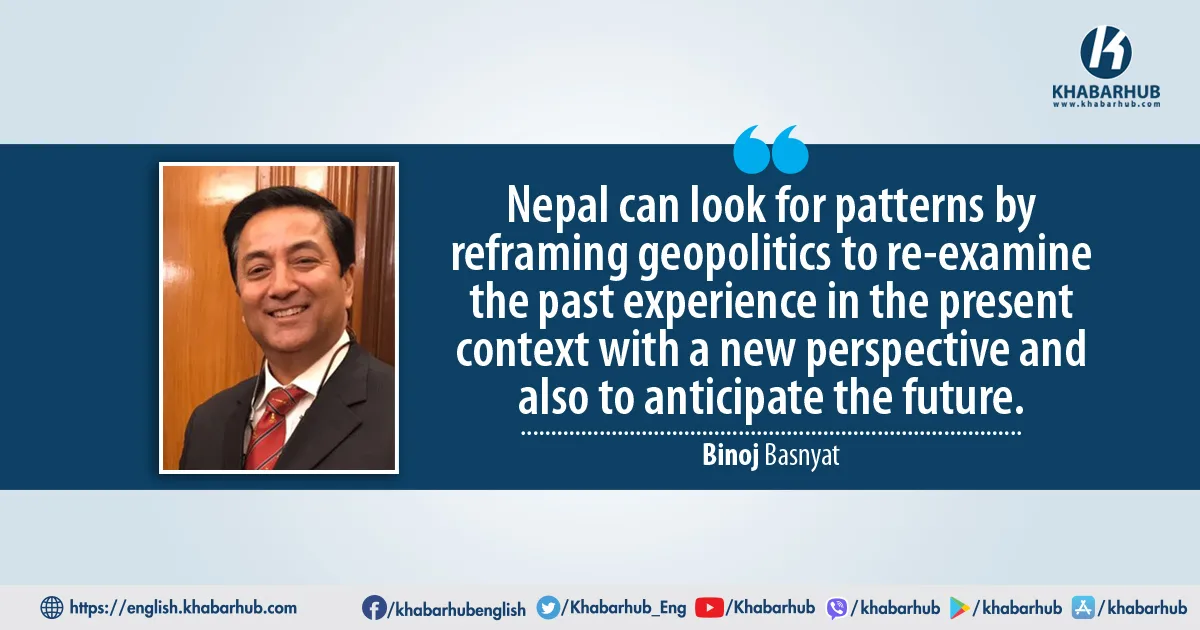‘Political transition’ is not a resolution for prolonged political instability. Power sharing, coalition-building, and electoral alignment have been the norms among the political elite and within the contemporary governance system.
Political instability has persisted for almost two decades, since the signing of the Comprehensive Peace Accord on 21 November 2006 between the Seven-Party Alliance (SPA) government and the Communist Party of Nepal, Maoist (CPNM).
Strategically, steps for peace have been marred by bereaved postures among powers—the Monarch, CPNM, and democratic parties—alongside anxiety about the resurgence of hostility.
This led the nations to reconcile on compromised terms, giving precedence to CPNM memos disaffirming national unification.
Even after the promulgation of the Federal Democratic Republic constitution in 2015, political instability continues. Expectations for peaceful livelihoods, shared national wealth, national inclusiveness, political decentralization, and major constitutional alterations, influenced by geopolitical shifts, have been overshadowed by prolonged political instability.
In sixteen years, political instability has confined policymakers to short-term political gains and goals. This has created a volatile environment affecting people’s confidence in new political leadership and eroding trust in the political system.
Furthermore, it affects national performance, international engagement, significant foreign policy implications, and considerable economic growth.
Political instability is also significantly impacting the country’s relations with other nations, potentially spilling over into regional instability and the international order.
Over seven decades, Nepal has witnessed three political systems and governance classifications: Monarchical, Constitutional Monarchy, Multi-party democracy with the Federal Republican system, and Panchayat.
Thirty Heads of Government (HoG) and thirty-two governments have been witnessed since the restoration of democracy thirty years ago.
Sixteen governments in sixteen years, involving coalitions of two or more parties and multiple alliances since 2008, have been observed.
From 1990 to 2002, ten Prime Ministers served in twelve years, and from 2002 to 2008, six Heads of Government served in six years.
The US has been cooperating and engaging for decades, conducting humanitarian assistance, disaster relief, and peacekeeping training.
Since May 2008, there have been sixteen Prime Ministers in sixteen years, including the fourth vote of confidence.
The obstruction by the Nepali Congress in the function of the Lower House of Parliament is turning into a parliamentary dilemma.
In the ongoing China-US rivalry, Nepal is viewed through the lens of both nations. With competition, cooperation, and confrontation in the Sino-India relationship, India observes Nepal under the influence of China.
Nepal’s national indebtedness is in search of diplomatic-political firmness or a middle path where all powers’ interests are committed to stability and prosperity. National politics revolves around national necessities and priorities.
Political instability in Nepal can have significant domestic strategic implications, affecting various aspects of governance, society, and development within the country. Here are three strategic implications of prolonged political instability:
Geopolitical inefficiency is rising as the China-India card is frequently played. The frequent invocation of the China-India card in the geopolitical landscape can contribute to inefficiencies and challenges in policymaking, governance, and international relations.
Here are some considerations to address this issue and promote a more balanced and constructive approach.
There is a trust deficit in political parties and reliance on optimism in day-to-day governance, such as engagements like the Millennium Challenge Cooperation (MCC).
The signing of global initiatives like the Belt and Road Initiative (BRI) bears political leverage during the forming of bipolarity.
The irregular political meddling depicts a lack of trust in Nepal’s political decision-makers, a prerequisite for FDI for development through loans, grants, or minimal-interest loans.
National interests are being negotiated due to forceful diplomatic gestures.
Nepal was part of the US State Partnership Program (SPP), operational for the last thirty years with ninety-two partnerships in 106 nations to enhance military capabilities, focusing on disaster response, leader development, aviation operations, cyber defense, and communications security.
The US has been cooperating and engaging for decades, conducting humanitarian assistance, disaster relief, and peacekeeping training.
The US assisted Nepal after the 2015 earthquake, providing over USD 7.5 million in assistance during the COVID-19 pandemic.
Nepal requested to participate in SPP twice, first in 2015 and again in 2017, and the US accepted Nepal’s request in 2019, though it was not ratified by the government in June 2022.
General Charles A. Flynn’s visit in June 2022 urged President Bidya Devi Bhandari and PM Deuba to join the SPP. The government’s decision not to be part of the SPP was commended by China.
The focus has been on the Indo-Pacific Strategy (IPS), the MCC Nepal Chapter, and the BRI, signed in 2017. Alongside the unity in 2018 of the Nepal Communist Party (Unified Marxist Leninist) and Nepal Communist Party (Maoists), the Nepal Communist Party Central Committee’s second convention in February 2020 concluded with several proposals.
The main issues were that the IPS is to contain China, and signing would assure US military presence in Nepal.
It indicates India is contracting its influence, while China is expanding its engagement, and the US remains unwavering.
Geopolitics and domestic policy inconsistency have led to reluctance in the inflow of Foreign Direct Investment (FDI).
In November 2017, Sher Bahadur Deuba-led government scrapped the contract of a USD 2.5 billion deal with China Gezhouba Group Company Ltd (CGGCL) for the construction of the 1200 megawatt Budhigandaki hydropower national pride project just before his visit to New Delhi.
Ambassadors represent the nation, not political ideological strides. They represent national issues, not party agendas. Diplomatic credentials will be degraded due to the undesired political decision of recalling Ambassadors with credible effective performance.
The Pushpa Kamal Dahal-led government had awarded the contract on May 15, 2017, nine days before he was to resign.
In September 2018, KP Oli’s cabinet meeting decided to award the contract for the project to CGGCL again.
Four years later, in April 2022, Sher Bahadur Deuba’s government overturned the decision. There were four political verdicts for the same project, offering sufficient substantiation of how flexible governments can be, with the China and India card in play.
The irregular political meddling depicts a lack of trust in Nepal’s political decision-makers, a prerequisite for FDI for development through loans, grants, or minimal-interest loans.
The 17th Republic Day was celebrated without concluding the home-grown peace process. On 21 April 2014, the Parliament of Nepal adopted the Enforced Disappearances Inquiry, Truth and Reconciliation Commission Act (TRC Act), subsequently establishing the Truth and Reconciliation Commission (TRC) and the Commission on the Investigation of Enforced Disappeared Persons (CIEDP) in 2015.
The cases of transitional justice have not achieved satisfactory outcomes, despite PM Prachanda’s relentless efforts on both the international and domestic fronts. It has imprisoned national unity and undermined international commitments and values.
Democracy also needs economic nationalism, not just political, where the livelihood of every citizen is accounted for. Fighting geopolitical complexities requires national unity, will, goals, and strategic planning.
Internal institutions have become unpredictable, deviating from institutional goals to politicalization. Politicization and unpredictability of internal institutions can seriously affect governance, accountability, and the rule of law, necessitating the strengthening of institutional integrity.
Despite its rich cultural heritage, resources, and strategic location, Nepal has faced persistent challenges in establishing stable and effective internal institutions.
The national journey to federalism has been marked by significant party-political upheavals, moving away from intended institutional goals toward politicalization, unprofessionalism, and institutional instability.
Therefore, in understanding Nepal’s diplomatic behavior in the Russia-Ukraine war, we must consider its historical ties, geopolitical position, and domestic political landscape.
An instance is Prachanda-led administration recalling Ambassadors with the change of government in the first week of June.
Sher Bahadur Deuba’s government recalled Ambassadors in September 2021, appointed a few months earlier in May by the Oli-led government.
Major appointments from constitutional to judiciary have been guided by political interests and party affinity for political benefit.
Ambassadors represent the nation, not political ideological strides. They represent national issues, not party agendas. Diplomatic credentials will be degraded due to the undesired political decision of recalling Ambassadors with credible effective performance.
The Ukraine Peace Summit 2024, held in Switzerland on 15-16 June, sought peace and served as a platform for small nations’ diplomatic positions in international relations. India was the only South Asian nation to attend the Ukraine peace summit.
Doesn’t the absence contradict Nepal’s foreign policy aimed at contributing to global peace, harmony, and security, in addition to its stance on the principles of the UN Charter observed in the UN vote?
Geopolitically, China and North Korea support Russia and did not attend. Four nations—Indonesia, Philippines, Singapore, and Thailand—attended from the Association of Southeast Asian Nations (ASEAN), while Malaysia, the ASEAN chair, did not attend. Japan and South Korea from Northeast Asia attended.
This illustrates global polarization and the ineffectiveness of intergovernmental organizations, in addition to questioning alliance and alignment’s consent for the new global order due to repositioning in national interests.
However, for small nations like Nepal, it is diplomatically positioning political stance on international issues for neutrality and non-aligned principles. Is ‘Ambiguity’ the key obstacle for Nepal’s determined aspirations?
Nepal’s foreign policy towards Russia’s offensive on Ukraine sheds light on the factors influencing its approach and strategic decisions.
Therefore, in understanding Nepal’s diplomatic behavior in the Russia-Ukraine war, we must consider its historical ties, geopolitical position, and domestic political landscape.
Thirdly, patronage networks and nepotism often dictate appointments and promotions within the bureaucracy, undermining meritocracy and administrative efficiency. This politicization hampers the effective delivery of public services and contributes to widespread dissatisfaction.
Of the six resolutions of the UN emergency sessions, Nepal supported four and abstained in two. This reflects party politics’ preferences over national foreign policies.
It also gestures towards the Prachanda-led government’s inclination towards China and Russia. Another argument is also the extent of China’s political influence in South Asia? Prachanda’s diplomacy echoes that of the key players in global affairs, namely China, India, and the US.
It is international politics for middle and great powers, and in diplomacy for small nations like Nepal, international security is paramount.
In geopolitics, Nepal’s interests should align with international diplomacy for global peace, adhering to international principles and laws.
Nepal should advocate for the protection of Ukraine’s “territorial integrity” and sovereignty. The sphere of influence and core values for big powers do not include aggression or invasion, as what is important is to prevent such actions from occurring within one’s borders. The search for a UN and international role is indispensable.
In regional diplomacy, did New Delhi make contact with Kathmandu and other capitals of South Asian nations regarding India’s diplomatic position, or were other South Asian nations not invited?
India stated that only proposals acceptable to both Russia and Ukraine can lead to peace. Delhi’s communiques, calling for the protection of Ukraine’s ‘territorial integrity,’ were signed by over 80 nations.
Nepal should advocate for world peace and say “NO” to aggression against sovereign nations.
The institutional unpredictability can be traced back to several interconnected factors. Firstly, the transition has been fraught with challenges, including delays in delineating boundaries, resource allocation disputes, and resistance from entrenched political interests.
An acceptable dress code, language, and calendar were adhered to and accepted. However, in recent years, the country has witnessed increasing fragmentation in social behavior, posing challenges to the preservation of its human spirit and nationalism.
Secondly, the political landscape is characterized by a fragmented party system with numerous ideological and ethnic factions.
This fragmentation often leads to unnatural electoral alliances and coalition governments that are fragile and prone to internal power struggles.
As a result, key institutions become arenas for political maneuvering rather than bastions of impartiality and professionalism.
Thirdly, patronage networks and nepotism often dictate appointments and promotions within the bureaucracy, undermining meritocracy and administrative efficiency. This politicization hampers the effective delivery of public services and contributes to widespread dissatisfaction.
Similarly, susceptibility to political interference perpetuates a culture of impunity, where powerful individuals or groups can act outside the law without consequence.
Human spirit and nationalism (Nepalipan) disappear as fragmentation engulfs social behavior. Nepal, a nation known for its rich cultural tapestry and diverse ethnic mosaic, has historically prided itself on a strong sense of national identity and resilience, often referred to as “Nepalipan.”
Another significant challenge to Nepalipan is the influence of external forces and globalization. While globalization has brought economic opportunities and cultural exchange, it has also introduced new ideologies and values that challenge traditional norms and practices.
An acceptable dress code, language, and calendar were adhered to and accepted. However, in recent years, the country has witnessed increasing fragmentation in social behavior, posing challenges to the preservation of its human spirit and nationalism.
At the heart of Nepalipan lies a deep-seated sense of unity amidst diversity, where people from various ethnic, linguistic, and religious backgrounds come together under the common identity of being Nepali.
This collective identity has historically transcended regional and ethnic differences, fostering a sense of solidarity and national pride.
Nepal’s history of resisting foreign domination, its unique geographical terrain, and shared cultural practices have all contributed to nurturing this cohesive national spirit.
However, the emergence of political and social fragmentation has begun to erode this sense of unity.
One of the primary factors contributing to this fragmentation is the politicization of identity politics. Ethnic and regional identities, which were once part of Nepal’s diverse fabric, have increasingly become politicized, leading to polarization and division.
Politicians often exploit these identities to mobilize support, thereby undermining the broader concept of Nepalipan.
Furthermore, socioeconomic disparities exacerbate these divisions. Rural-urban divides, Pahadi Madhesi dissents, unequal access to education and healthcare, and disparities in economic opportunities contribute to feelings of marginalization.
This socioeconomic fragmentation not only undermines national cohesion but also breeds discontent and alienation among segments of the population.
Curriculum reforms that emphasize multicultural heritage, teach civic responsibility, and promote critical thinking can instill pride in being Nepali among younger generations, fostering a sense of unity and belonging.
Another significant challenge to Nepalipan is the influence of external forces and globalization. While globalization has brought economic opportunities and cultural exchange, it has also introduced new ideologies and values that challenge traditional norms and practices.
The rapid spread of digital technology and social media has exposed Nepali society to diverse perspectives, sometimes leading to clashes with traditional values and customs.
Moreover, Nepal has been grappling with the aftermath of a decade-long Maoist insurgency and subsequent political instability.
The transition from a monarchy to a federal democratic republic has been fraught with challenges, including institutional weaknesses, corruption, and governance issues.
These factors have contributed to disillusionment among the populace and weakened faith in national institutions, further eroding the foundation of Nepalipan.
Conclusion
The impact on international diplomacy must be evaluated with relevance, as good, cordial, and reliable relationships with regional and global powers have provided strategic benefits in international diplomacy and on the international podium. Looking beyond its immediate neighborhood is required as part of the global strategic landscape.
Geopolitics is altering with two strategic assessments in national capitals worldwide. You can observe it in the meeting halls of political parties in Kathmandu as well. First is the growing influence of international power and influence by China and now in Kathmandu. Second involves US prioritizing strategies, particularly enhancing Comprehensive Global and Strategic Partnership with India and the states bordering China as the core geopolitical scope.
Nepal has choices. While facing significant challenges to its human spirit and national unity due to social fragmentation, the intrinsic resilience and cultural richness of Nepalipan offer hope for the future.
One is to foster a renewed sense of Nepalipan and counteract fragmentation; concerted efforts are needed at various levels.
Geopolitics no longer deals just with neighbors; Nepal can look for patterns by reframing geopolitics to re-examine the past experience in the present context with a new perspective and also to anticipate the future.
The spirit of volunteerism, community solidarity, and cultural resilience remains strong in many parts of the country, reflecting the inherent strength of Nepalipan.
Education also plays a crucial role in preserving and nurturing a shared national identity.
Curriculum reforms that emphasize multicultural heritage, teach civic responsibility, and promote critical thinking can instill pride in being Nepali among younger generations, fostering a sense of unity and belonging.
Second, the unpredictable sway away from institutional goals towards politicization undermines democratic governance, economic development, and social cohesion.
Depoliticizing key institutions through transparent and merit-based appointments is essential.
Building consensus among political parties and fostering a culture of accountability are also essential steps towards stabilizing institutions and promoting national development.
Nepal’s answer is to successfully navigate its relationship with all three powers: immediate powers China and India, as well as the US, still the only global power.
China’s attempts to position itself to design Asia’s security and political architecture are advancing.
Proactive engagement is necessary with value-based democratic governance, supporting a rule-based economic order, and building inclusive, multilateral platforms for Nepal to benefit economically, diplomatically, and politically.
Geopolitics no longer deals just with neighbors; Nepal can look for patterns by reframing geopolitics to re-examine the past experience in the present context with a new perspective and also to anticipate the future.
(The author is a Strategic Analyst, Major General (Retd) of the Nepali Army, and is associated with Rangsit University, Thailand)
(Views expressed in this opinion are the writer’s and do not necessarily reflect the editorial stance of Khabarhub)









Comment